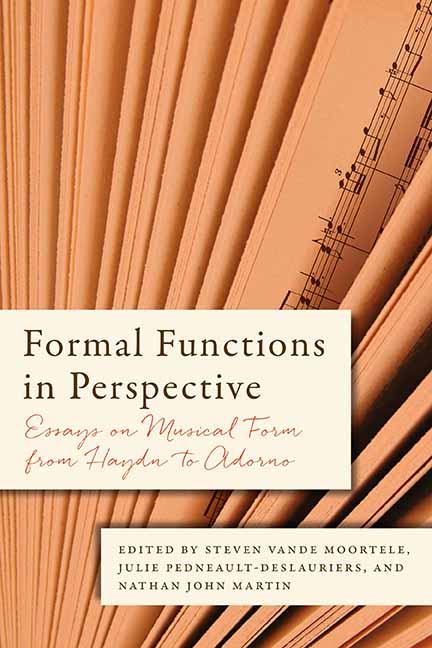Book contents
11 - Dominant Tunnels, Form, and Program in Schoenberg’s Verklärte Nacht
Published online by Cambridge University Press: 26 May 2021
Summary
“Zwei Menschen”: Schoenberg and Dehmel
The premiere of Schoenberg's sextet Verklärte Nacht on March 18, 1902, elicited mixed reviews. Most critics were impressed by the work's inventiveness and richness of instrumental colors and sound, and they hailed the young Schoenberg as a composer to be reckoned with. Others, however, chastised the sextet on account of its post-Wagnerian harmonic language—rife with jarring chromaticism, dissonant counterpoint, and relentless sequences— which they perceived as contrived, harsh, or simply ugly. Several writers also took issue with the work's programmatic dimension. In addition to a degree of general resistance to the idea that chamber music, the last standing bastion of “absolute music,” might yield to the modern taste for programs, some doubted whether the intricacies of Richard Dehmel's “Verklärte Nacht” could lend themselves to musical treatment, while others objected to what they considered its dubious morality. In the poem, a woman confesses to her beloved that before she met him, she had given herself to a man whom she did not love because she longed for fulfilment and motherhood. She now carries this man's child. Magnanimously, her companion vows that their mutual love will transfigure the child and make it his own: “you will bear it for me, from me.” In his review for the Neue Freie Presse, Richard Heuberger doused Schoenberg's transfigurative flame with icy cynicism, deriding the sextet's “overly-tolerant two-father system for composing and hearing” and thus heaping contempt both on the program and the work's admixture of the programmatic and the absolute: “Is this to be told in music without words? Schoenberg credits composition with such definite expressive ability!”
Heuberger's doubts were compounded by the fact that the public did not even receive a copy of the poem, contrary to both custom and Schoenberg's wishes. Indeed, lest Dehmel's “Verklärte Nacht” prejudice the audience against the musical work, the Arbeiter Zeitung critic Josef Scheu suggested, tongue in cheek, that the concert organizers had “shied away from desecrating the concert program with this chapter taken from the Gospel of free love, and only the critics, who evidently cannot become more corrupt than they already are, were given copies of the sinful poem.”
- Type
- Chapter
- Information
- Formal Functions in PerspectiveEssays on Musical Form from Haydn to Adorno, pp. 345 - 372Publisher: Boydell & BrewerPrint publication year: 2015



